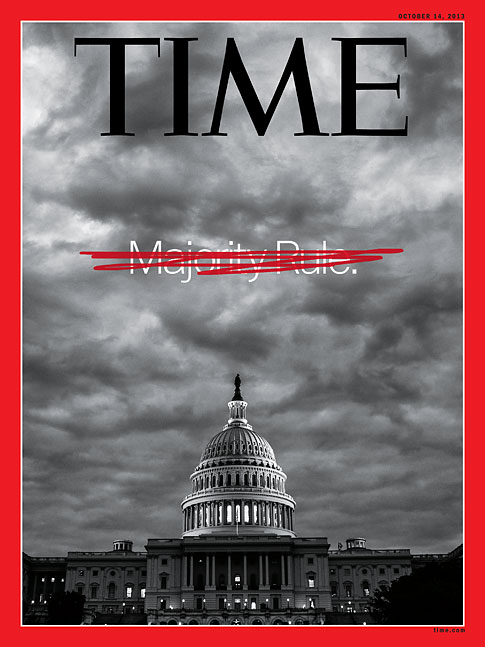
(3 of 6)
Maybe the only surprise was how ill prepared the Republican leadership was for this safe-seat insurrection. For a few fleeting moments after Obama's re-election, there were signs that the GOP might turn to the center, as Obama had predicted during the 2012 campaign. A decisive re-election would break the feverish stalemate in Washington, he said. Two days after Obama's victory, Boehner was asked whether Republicans would continue to pursue a repeal of health care reform. "I think the election changes that," he said. "Obamacare is the law of the land." He flatly rejected the idea of tying funding for the bill to the larger fiscal battle. "Trying to put Obamacare on [a budget resolution] risks shutting down the government," Boehner warned in March, the last time the government faced a funding decision.
A blue-ribbon panel of Republican elites urged the party to change along with the evolving electorate by becoming more pro-immigration and gay-friendly. Jeb Bush, the most bona fide conservative member of his family's Republican dynasty, floated a long-anticipated trial balloon as a 2016 candidate. Burnishing his proven appeal among Hispanic voters, the former Florida governor tried to seize the moment by publishing a manifesto to solve the problem of illegal immigration. But the appetite for change was an illusion; the moment had already passed. Bush's ideas were snuffed by a grassroots reaction that refused to acknowledge defeat. And while immigration reform would clear the Senate, it was already dead on arrival in the House.
The GOP base wanted candidates who would resist, not compromise. That same week, Kentucky Senator Rand Paul fluttered their hearts with his 13-hour filibuster to protest the Obama Administration's drone policy. The issue, troubling and arcane, united antigovernment conservatives with liberals who fear a surveillance state. Foreign policy fissures in both parties made drone politics complicated, but Paul's defiance of the President set the tone for the months that followed.
Meanwhile, the budget process was still a mess. For the first time since 2009, both Senate and House managed to pass budget bills--but hard-liners sabotaged a committee to reconcile the two spending plans. Few noticed at the time, because higher tax rates and a slightly stronger economy boosted tax revenue and masked the emergency. But by May, the impasse was obvious and an autumn crisis loomed like the third-reel showdown in a spaghetti western.
That's when the GOP's nervous bankers drew down the shades on their establishments. During Mitt Romney's 2012 run for President, a few dozen superrich donors dispensed huge sums, while party bigwigs like strategist Karl Rove and Republican National Committee chairman Reince Priebus spread the cash around as needed. When Romney lost and the strategy proved an expensive bust, the checkbooks closed and the party's power structure shifted.
